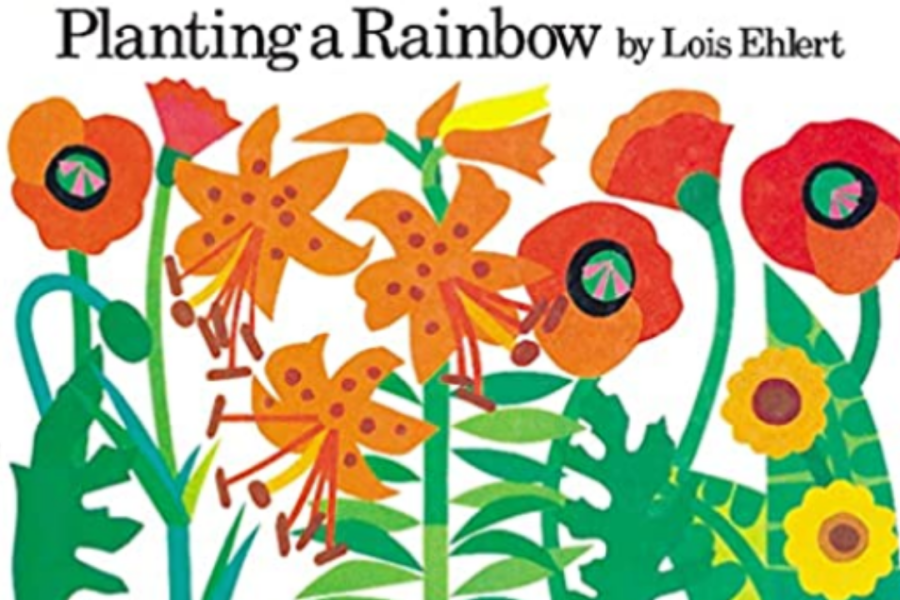
“A book is like a garden, carried in the pocket.”
Thank you to the late author and illustrator Lois Ehlert for her colorful books that remind us spring is coming.
To everyone working hard on behalf of our kids: thank you. Thank you for all that you do, despite and because of another year of flexible planning and expectations. Your work is essential and appreciated.
Unraveling the pandemic’s impacts has only just begun, so here is a preliminary look at current research about our world, and how literacy and the empathy imparted by stories can be used as tools to help us manage.
Research shows children are behind in reading, particularly in under-resourced communities, and are reading less and spending more time on social media. What can we do?
- Redefine learning loss and “screen time“
- Direct parents/caregivers to useful apps that support literacy skill development
- Support social emotional learning at home and at school
- Use relationship mapping. For students, a positive connection to at least one school adult — whether a teacher, counselor, sports coach, or other school staff member — can have tremendous benefits that include reduced bullying, lower drop-out rates, and improved social emotional capacities. Use this relationship mapping tool to ensure every child has an adult.
There is a lot of scary and divisive news in our world. What can we do?
- Navigating tensions around teaching racism – webinar from Harvard Graduate School of Education
- Build diverse book collections
- Foster Courageous Dialogue in Schools also from Harvard – See the Montrose School LifeCompass Institute and “Courageous Dialogue Toolkit: Practical Wisdom for School Leaders”
- Develop strong relationships with families, teams within our organizations, leaders, and trust. This research points to wisdom inspired by middle schoolers on respect.
How will you incorporate the summer reading theme Ocean of Possibilities? CLiF has open grants to support year-end, summer, and 2022-2023 school year activities, including grants to offer books, author visits, family engagement activities, and general literacy fun.
FOR TEACHERS
- 5 easy tips for encouraging daily reading at home
- Using fan fiction writing to build skills
- Helping students formulate the right question
- A growing body of research suggests traditional, ability-based reading groups can widen learning gaps. This 2018 article lays out the debate. Here’s the latest update on the research.
FOR LIBRARIANS
- Highlighting active nonfiction
- The Green Book for Libraries, a Black/Indigenous/People Of Color-only crowd-sourced rating and review system for library, information, and archival workplaces
- Trend alert: bilingual book
- Intercultural Leadership Toolkit for Librarians
- National Library Week, April 3-9
FOR PARENTS
FOR EARLY EDUCATORS
- What a child’s play can tell us about them
- Using sound walls
- Webinar: Relationships and Health — New Connections for Early Learners
- Is it time to rethink our preschool model?
PROGRAM IDEAS
- Book Baskets – Put students’ interests front and center when you design classroom book baskets. These topic-based baskets help students build knowledge and vocabulary and scaffold students into more complex texts as they dig into topics that fascinate them. Create your own book baskets and get tips from educators who have used them on our blog here and here.
- Use cool photos of owls as writing prompts or inspiration
- Readers’ Theater – In this performance-based fluency activity, students work with the same text all week, focusing on a different component of fluency each day–then they perform at the end of the week! Borrow ideas from educator Lorraine Griffith’s routine and list of free readers’ theater scripts and resources. Find additional guidance, lesson plans, scripts, and videos of readers’ theater in action, at Reading Rockets.
- How to make a zine



